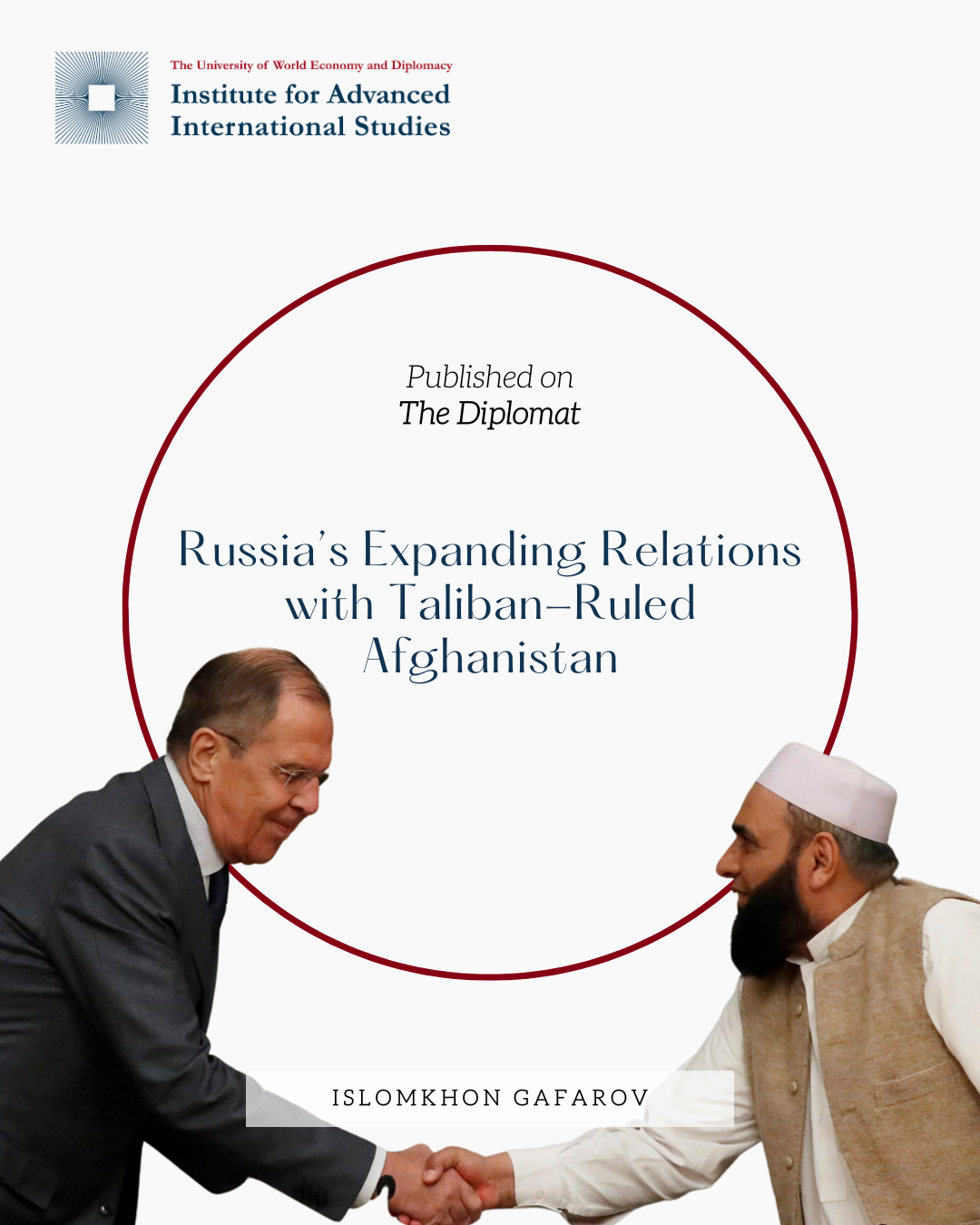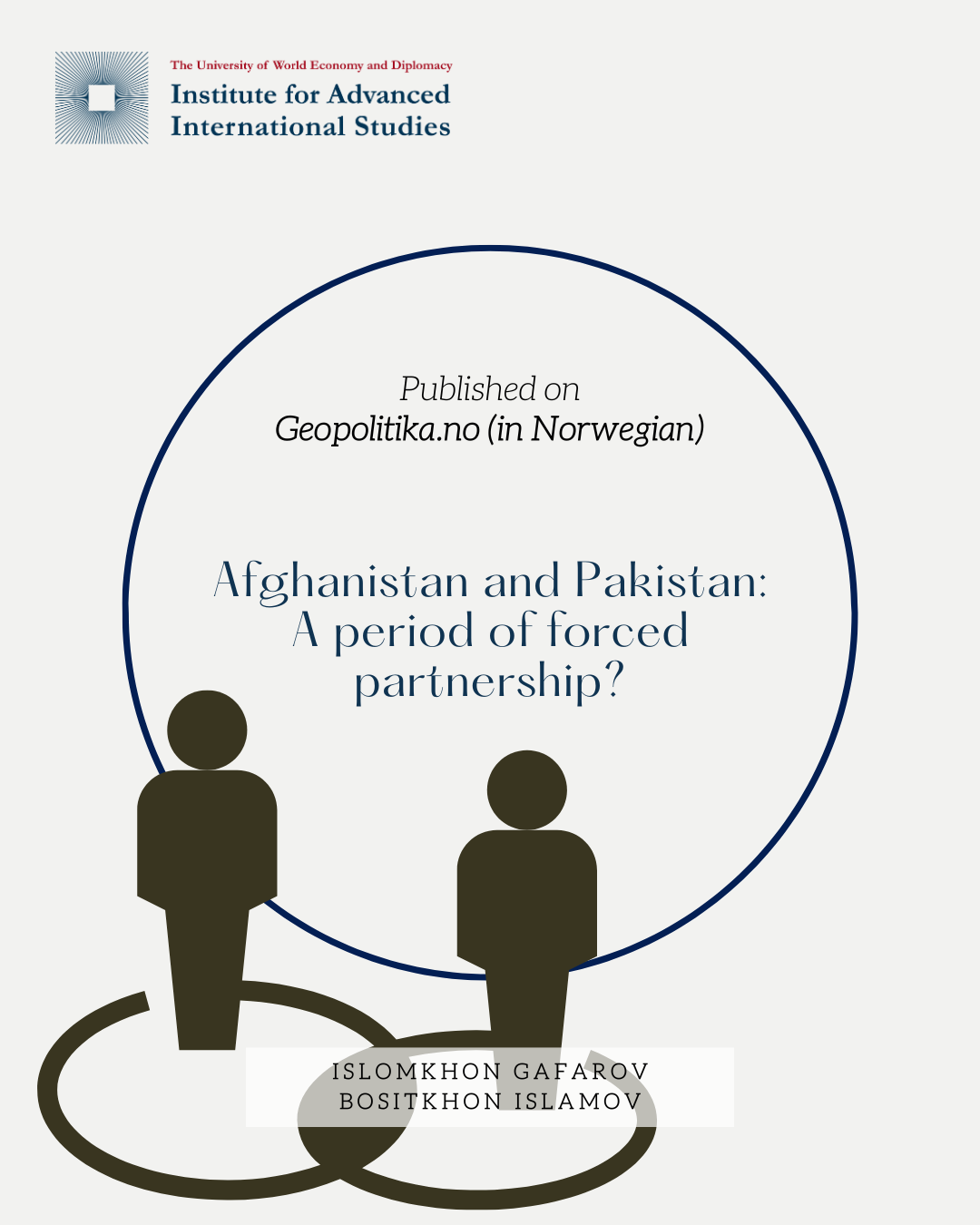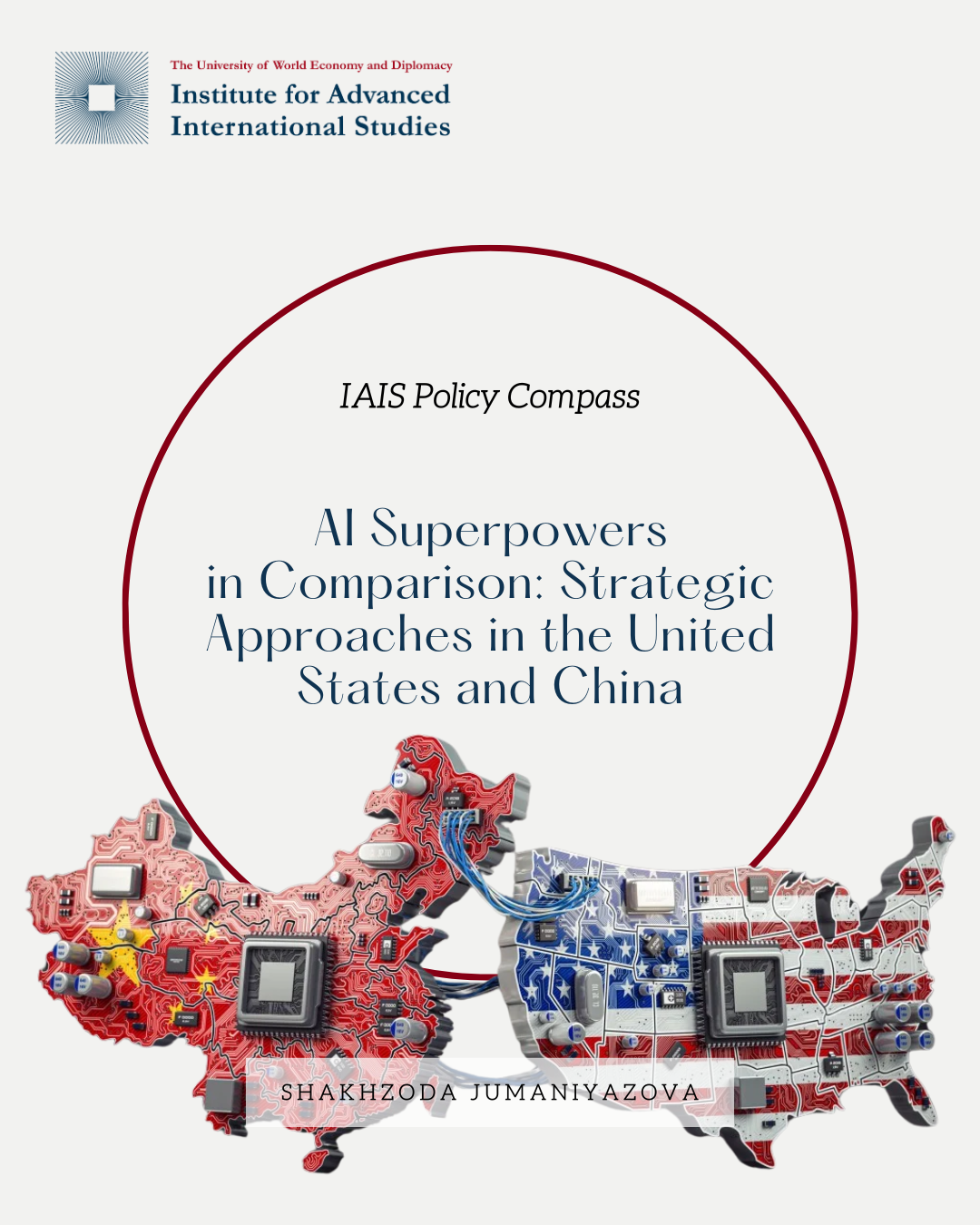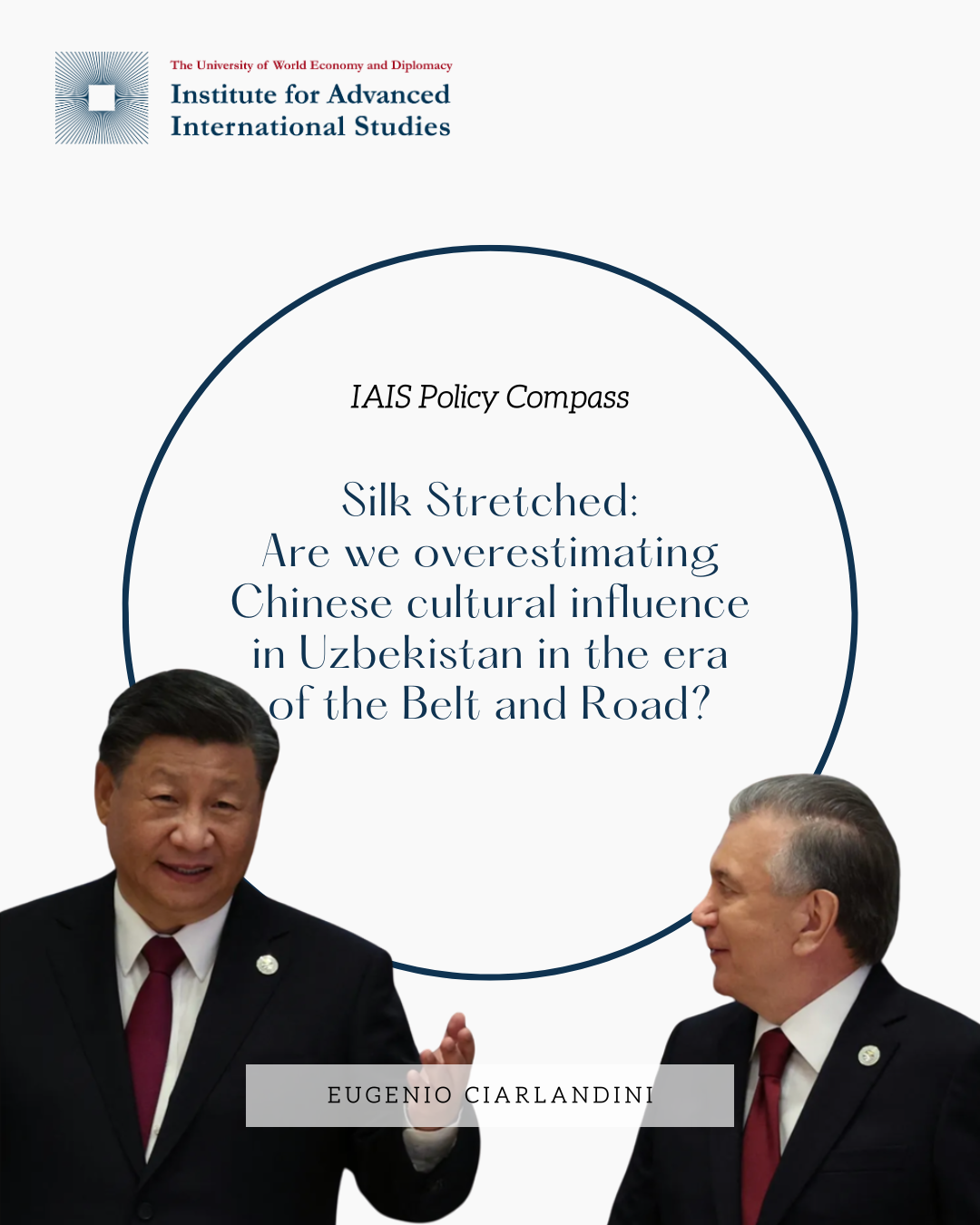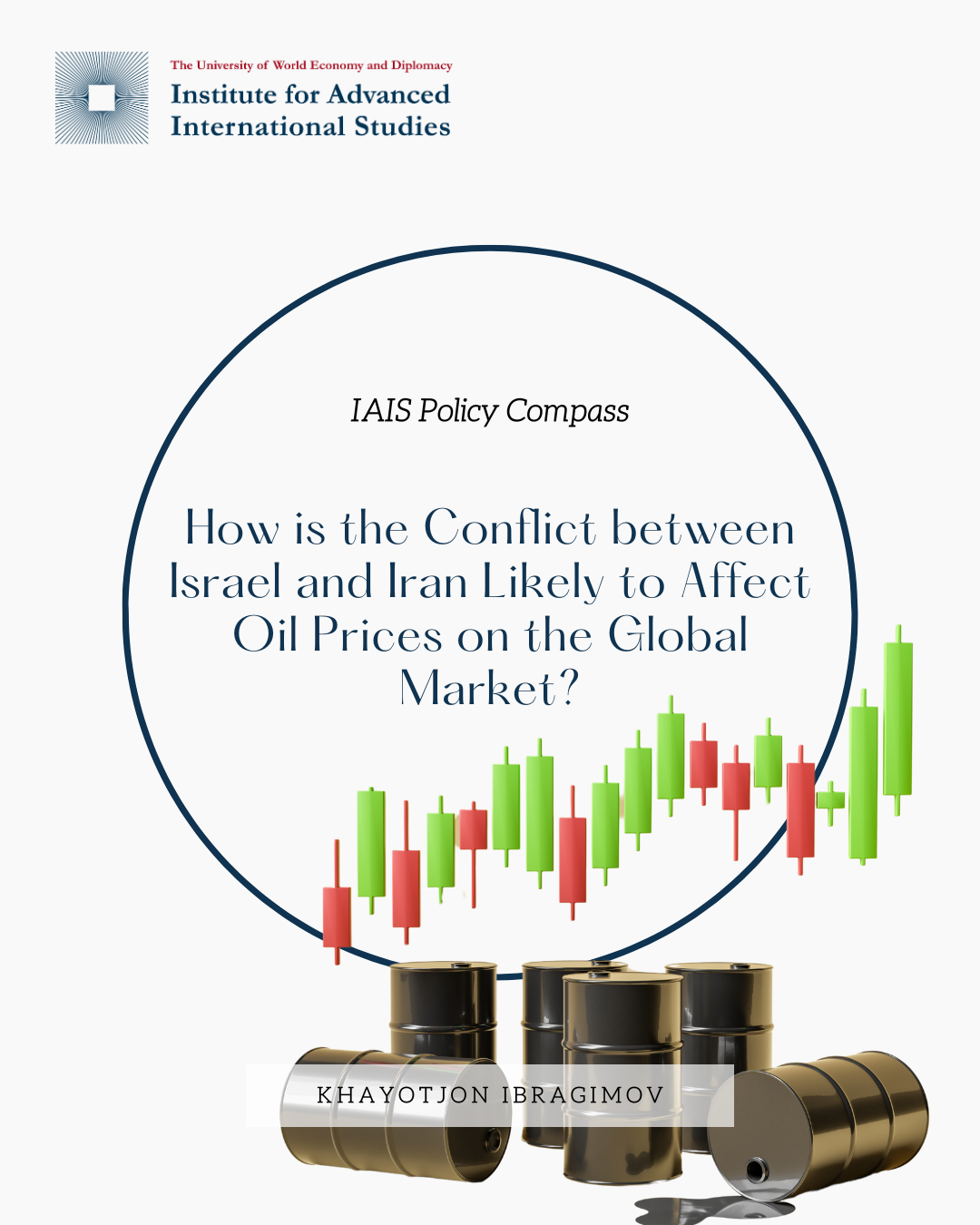In the 21st century, artificial intelligence (AI) has evolved from a technological innovation into a key instrument of global strategic competition. The relevance of this issue stems from the fact that the outcome of the AI race may redistribute centers of global influence, alter the balance of power in international politics, transform the principles of digital regulation, and establish new standards for the economy, defense, and societal governance. In this context, particular attention is drawn to the United States and China—two leading technological powers whose ambitions, strategies, and resources shape the architecture of the global AI landscape and largely determine its developmental trajectory.
Current Landscape of AI Development. The United States maintains a significant lead in private investment in AI: in 2024, American sector investments reached $109.1 billion, compared to $9.3 billion in China. Similarly, in 2023, the United States attracted approximately $67.2 billion in private AI funding, while China secured only $7.8 billion. American startups also lead in venture financing: from 2013 to 2023, U.S.-based AI companies received around $335 billion in venture capital, compared to $104 billion in China. Quantitatively, the United States also surpasses China: according to the Stanford AI Index, there are over 10,000 actively funded AI companies worldwide, of which 5,509 are American and 1,446 are Chinese.
In contrast, China has taken the lead in scientific output. According to Stanford HAI, Chinese researchers publish more AI-related articles. The Global AI Readiness Index indicates that China ranks first globally in terms of scientific publications, overtaking the United States, which ranks third. However, in the overall government readiness index, the United States retains the top position, while China ranks 16th, reflecting the stronger institutional and infrastructural maturity of the U.S.
The United States has developed a number of leading large language models (GPT-4/OpenAI, Gemini/Google, Claude/Anthropic, etc.) that have gained global prominence. Chinese companies are also creating comparable systems. For instance, Baidu’s chatbot Ernie Bot reached over 200 million users by April 2024. Nevertheless, Western products still dominate in reach: according to Al Jazeera, ChatGPT recorded around 1.86 billion views annually, whereas Ernie received only 14.9 million. The Chinese government requires formal approval of all generative AI services prior to deployment, whereas in the U.S., regulation is gradually taking shape.
AI is being actively integrated into both the military and civilian spheres in both countries, encompassing areas such as autonomous systems, intelligence, cybersecurity, medicine, transportation, and surveillance technologies.
Government Strategy and Support. Both nations have set technological leadership as a key strategic goal. Since 2020, the United States has enacted the National AI Initiative Act, established the National AI Office (Select Subcommittee on Artificial Intelligence), and adopted funding plans (such as under the CHIPS Act) to support AI research. In October 2023, the Biden Administration issued an Executive Order on the "Safe, Secure, and Trustworthy Development of AI," introducing requirements for red-teaming and the development of safety and privacy standards. In January 2025, the Trump Administration signed an Executive Order on “Removing Barriers” explicitly proclaiming a policy to “sustain global U.S. dominance in AI”.
China's national strategy is clearly oriented toward 2030. The “New Generation Artificial Intelligence Development Plan” launched in 2017, aims to make China the global AI leader by 2030. AI is a priority in the country’s 14th Five-Year Plan (2021–2025). The government is investing billions and has established “national AI teams” including Baidu, Alibaba, Tencent, SenseTime, iFlytek, among others, as designated leaders by the State Council. At the same time, China is actively refining its regulatory framework. Between 2021 and 2023, the country introduced its first national regulations for algorithms—covering content recommendation, “deep synthesis” (deepfakes), and generative models. For example, the 2023 Interagency Measures stipulate that AI-generated outputs must be “truthful and accurate” and must not contradict the “core values of socialism”. Developers of major models are required to register their algorithms and undergo government security assessments. These measures reflect the essence of China's approach: centralized control over information and ideological content.
Ethics and Regulation. The ethical and regulatory approaches of the two countries differ markedly. In the U.S., openness is encouraged: most AI laboratories publish their code and datasets, and debates focus on ethics and privacy under existing legislation (e.g., GDPR, California Consumer Privacy Act) and frameworks (AI Bill of Rights, NIST Framework). Freedom of development remains high, fostering innovation through competition.
In China, efforts are geared toward strict state oversight. Regulatory bodies require pre-approval of content, and comprehensive algorithmic rules have been enacted. According to international assessments, China ranks outside the top 30 in categories related to AI governance and ethics. Thus, China prioritizes centralized supervision and censorship, while the U.S. relies on market-based competition and self-regulatory mechanisms (e.g., audits, open standards).
Forecasts and Expert Assessments. Competition is expected to intensify over the next 5–10 years. RAND Corporation (2025) projects that China may reach parity with the U.S. in terms of top-tier AI model quality within the year. In response, U.S. authorities have adopted a dual-track strategy: restricting technological exports to China while accelerating domestic innovation through major investments and light-touch regulation. However, breakthroughs by Chinese companies such as DeepSeek, Alibaba Cloud, Baidu, and Tencent are significantly narrowing the technological gap, casting doubt on the long-term dominance of the U.S.
One of the most notable examples of such progress is the company DeepSeek. Founded in 2023, it launched its R1 chatbot in January 2025, which quickly became the most downloaded free app in the U.S. App Store. The model demonstrated performance comparable to GPT-4, especially in tasks involving logical reasoning and mathematics, while consuming significantly fewer resources due to its Mixture-of-Experts architecture. This enabled DeepSeek to train its model at 42% lower cost than Western counterparts while achieving higher throughput. Despite its success, the company has already faced international scrutiny regarding the risks of misinformation.
Meanwhile, Chinese experts such as Song-Chun Zhu—professor, director, and head of the AI Institute at Peking University, often referred to as the “godfather” of Chinese AI—state that China is “fully capable of setting the agenda” in the era of generative AI, thanks to the rapid development of its research and startup ecosystem. Thus, the future of AI leadership depends on how effectively the U.S. can leverage its advantages and whether China can continue to close the gap dynamically.
Overall, most forecasts are skeptical of the notion of inevitable hegemony by a single country. Independent analyses suggest that the AI race is not a “Cold War” between two superpowers, but rather a long-term technological process with strengths in different areas. While the United States leads in investment, models, and commercial innovation, China excels in implementation scale and data volume. The fate of AI leadership in the coming decade will largely depend on which country better leverages its ecosystem and resources, retains top talent, and finds a balance between openness and security.
* The Institute for Advanced International Studies (IAIS) does not take institutional positions on any issues; the views represented herein are those of the author(s) and do not necessarily reflect the views of the IAIS.

